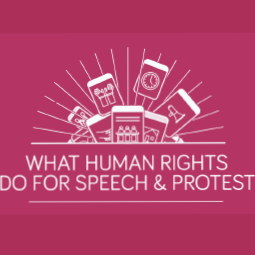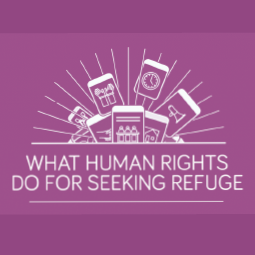
Anna Merryfield: What is the EU charter?
Saxon: That's easy. It's an international treaty that a bunch of European countries signed after World War Two.
Anna Merryfield: Wrong. That's the European Convention on Human Rights.
Saxon: But are they the same thing?
Anna Merryfield: No. And I'm about to explain why.
Saxon: I actually knew they weren't the same thing. I was just pretending for maximum educational impact.
Anna Merryfield: Yeah. Alright. Roll title. The European Union Charter of Fundamental Rights is a simple way of knowing which social, economic and political rights the EU must respect. It means that key bits of the EU like its court and parliament must respect these rights when doing things like making laws.
Saxon: But how does it have anything to do with the UK?
Anna Merryfield: I was just getting to that, but thanks for interrupting. After Brexit, the government wants to get rid of the charter. But until Brexit the UK is still an EU member state. So we need to respect the charter when doing things involving EU law. However, the government doesn't need to worry about the charter when doing things outside of EU law.
Saxon: And that's where the EU charter is different from the Human Rights Convention. The Human Rights Convention is always on, baby! And it applies in all areas of our lives whenever the state is involved, such as healthcare, prisons, and schools.
Anna Merryfield: So you're saying the Human Rights Convention is like a treaty or something?
Saxon: Correct. After World War Two European states got together and agreed on a list of basic rights and freedoms that should be respected by everyone. That list became the Human Rights Convention.
Anna Merryfield: The EU charter was introduced much later, in 2000. It copies a lot of the rights in the convention but it also goes a bit further, like in data privacy and workers' rights.
Saxon: So what's the point in having both?
Anna Merryfield: Excellent question. The EU itself isn't bound by the Human Rights Convention. So the charter was created to make sure the EU respects human rights laws.
Saxon: So both the charter and the convention can be powerful tools in defending our human rights.
Anna Merryfield: Exactly. The charter applies in fewer situations but goes further than the convention in some areas.
Saxon: So the charter and the convention are like a big package which protects our human rights. But, after Brexit, the charter could disappear from that package, and honestly, we don't know what that could do to our rights.
Anna Merryfield: So in these uncertain times, let's stand united in the fight for our rights.











